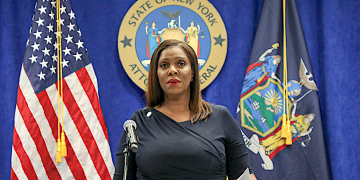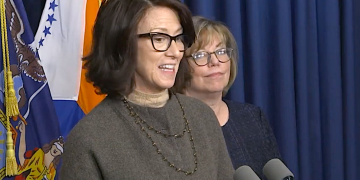
Among both his medical peers and the patients they serve, Dr. Abe Levy sees a loss of confidence in organizations such as the one he newly leads in Westchester County.
Levy, an internist and veteran administrator at the Mount Kisco Medical Group, this month became president of the Westchester County Medical Society for a one-year term, succeeding Dr. Joseph J. Tartaglia, a White Plains cardiologist. He brings to the elective office some 13 years of executive experience in Mount Kisco, where he is medical director and chief quality officer of the 270-physician medical group.
Formerly the group”™s director of quality assurance and utilization review, Levy in the late ”™90s was a prescient pioneer in the transition to electronic medical records (EMR) by physicians and paper-burdened office managers of patient files. He serves on the information technology steering committees of Northern Westchester Hospital and Stellaris Health Network. At a time when hospitals and doctors”™ practices move to comply with EMR mandates of the federal health care reform bill or incur financial penalties, he is a member of the physician leadership group for implementing an EMR at Health Quest”™s Putnam Hospital Center in Carmel and Vassar Brothers Medical Center in Poughkeepsie.
Levy has been a member of the county medical society since 1974, when he joined the Mount Kisco Medical Group after a stint as an assistant professor of medicine at the University of Rochester. A native Tennessean, he is a graduate of the University of Chattanooga and the University of Tennessee Medical School.
For physicians in Westchester and the county”™s 214-year-old medical society, “The most pressing issue is to keep our focus on patients and patient care and to restore physicians”™ confidence in the Medical Society being truly their representative,” Levy said.
A number of physicians, he said, “find organized medicine is less representative of their needs than it used to be. For patients, there”™s an erosion of confidence in authority at all levels. To restore that we have to maintain a commitment to integrity, honesty and transparency.”
One of the oldest medical societies in the nation, the county group he heads “needs to represent the values and opinions of the membership,” said Levy.
Membership in state and national medical organizations has steadily declined, as it did over the last decade in Westchester. In 2010, though, the county society held steady at about 750 dues-paying members, said Westchester County Medical Society Executive Director Brian O. Foy.
Levy said physicians “don”™t know yet” what will be the impact of the 2009 Patient Protection and Affordable Care Act on their practices and livelihoods. At the medical society, “In general, we don”™t see it as a positive, but exactly how this fear will translate into a reality is not yet clear.”
Levy said he personally favors universal health insurance coverage, “but not the way that (health care reform) bill seeks to accomplish it. I believe that bill will serve to undermine employer-based health insurance and move us toward government-based health insurance.”
Government-based insurance is needed for poor, unemployed and retired persons, a group that accounts for about half of insured patients in the U.S., said Levy. Yet two-thirds of currently uninsured Americans work full-time, he said.
“The problem is that some employers shirk their responsibility. I believe what we need is to require employers to provide health insurance for their employees.” Though the health care reform bill in part does that, the penalties for failure to provide coverage are “so modest” that employers will find it less costly to pay the penalties than to pay for employee health insurance, he said.
“Physicians can”™t keep their doors open on what either Medicare or Medicaid pays,” said Levy. Yet Medicaid, the “most dysfunctional” government insurance program, is expanded in the Patient Protection bill, he noted.
Amid the prevailing uncertainty in health care, Levy said Westchester physicians benefit from the support of the Westchester County Association, an advocate and lobbyist for health care reform in Albany, “and through them the support of the business community, which is a positive that many physicians don”™t have.”
In this county, “Employers see that maintaining physicians is a positive for their employees and Westchester. That”™s a positive that many other counties don”™t have.”
In his year as Medical Society president, “I would like to continue to advocate for patients, to advocate for physicians and grow our membership. Those are my goals,” Levy said.
















